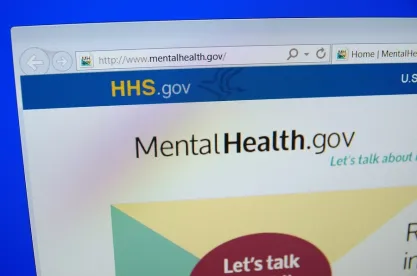On November 16, 2020, the Department of Health and Human Services Office of Inspector General (HHS OIG) issued Special Fraud Alert: Speaker Programs (Fraud Alert) to “highlight the fraud and abuse risks associated with the offer, payment, solicitation, or receipt of remuneration relating to speaker programs by pharmaceutical and medical device companies.” Speaker programs are defined in the Fraud Alert as company-sponsored events at which a health care professional (HCP) “makes a speech or presentation to other HCPs about a drug or device product or a disease state on behalf of the company” in exchange for an honorarium. This is the first Special Fraud Alert issued by HHS OIG since 2014.
Notably, HHS OIG’s fraud alerts often relate to risks identified during investigations and settlements. This Fraud Alert aligns with recent enforcement activity in the life sciences industry related to speaker programs. Additionally, Gregory Demske, Chief Counsel to OIG, highlighted concern regarding speaker programs at the recent 21st Virtual Pharmaceutical and Medical Device Ethics and Compliance Congress, stating, “Information – particularly technical information – can be conveyed just as effectively through a video call or web conference than it could be in person – maybe more effectively – than at a high end restaurant.”
In the Fraud Alert, HHS OIG states it is “skeptical about the educational value of such programs.” Speaker program risks highlighted in the Fraud Alert include:
-
Selecting high-prescribing HCPs to be speakers and rewarding them with lucrative speaker deals;
-
Conditioning speaker remuneration on sales targets, such as requiring speaker HCPs to write a minimum number of prescriptions;
-
Holding speaker programs at entertainment venues or during recreational events or otherwise in a manner not conducive to an educational presentation. Examples include wineries, sports stadiums, fishing trips, golf clubs, and adult entertainment facilities;
-
Holding programs at high-end restaurants where expensive meals and alcohol are served;
-
Inviting HCP attendees who previously attended the same program; and
-
Inviting friends, significant others, and family members of the HCP who do not have a legitimate business reason to attend the program.
It is significant the OIG warns that all parties who participate in speaker programs are subject to scrutiny. This includes pharmaceutical and medical device companies that offer or pay remuneration to HCP speakers and provide free meals to program attendees. It also includes HCP speakers who receive honoraria payments and HCP attendees who receive free meals at speaker programs.
HHS OIG states the characteristics and actual conduct of the parties involved in a speaker program can demonstrate intent relevant to the Federal Anti-Kickback Statute. Characteristics that potentially indicate an inappropriate intent include:
-
Speaker programs with little or no substantive information actually presented;
-
Availability of alcohol;
-
Meals exceeding modest value provided to program attendees;
-
Programs held at locations that are not conducive to the exchange of educational information, including restaurants or entertainment or sports venues;
-
Sponsoring a large number of programs on the same or substantially the same topic or product, especially in situations involving no recent substantive change in relevant information;
-
Significant passage of time with no new medical or scientific information nor a new FDA-approved or cleared indication for the product;
-
Repeat attendance by HCPs on the same or substantially the same topics or being an attendee after being a speaker on substantially the same topic;
-
Attendees who do not have a legitimate business reason to attend the program;
-
Commercial employees influence the selection of speakers or the company selects HCP speakers or attendees based on past or expected revenue the speakers or attendees have or will generate by prescribing or ordering the company’s products; and
-
HCP speakers paid more than fair market value for the speaking service or compensation takes into account the volume or value of past or potential future business generated by the HCP.
HHS further recognizes many in-person activities are curtailed right now and “the risks associated with speaker programs will become more pronounced if companies resume in-person speaker programs or increase speaker program-related remuneration to HCPs.” HHS OIG urges companies to assess the need for in-person programs given the risks highlighted above. HHS OIG also urges HCPs to consider the risks of receiving remuneration related to speaker programs given the availability of other ways to obtain this information.



 />i
/>i
